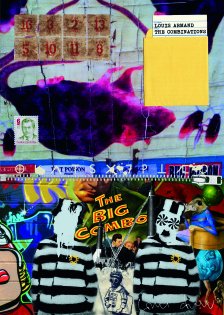What do you think?
Rate this book


Paperback
First published April 17, 2016
There were bridges, empty parks, railway lines, boat horns echoing in a distance calculated to sound fake. As fake as all the corbels, trefoils, lancets, spandrels, voussoirs, vergeboards, chevrons, crockets, mouchettes, buttresses, clerestories, balustres, architraves, cupolas of this Potemkin village his mind seemed determined to erect at every turn. As fake as a city made of playing cards & balsawood, scraps of newsprint, papier-mâché, celluloid & déjà vu, bits & pieces of wrecked signage glued together, with nothing behind them but empty space. Stageprops.
Fingers tapping secret commands on the walls – Morse transcriptions of alien traffic – the groaning through the floor – the scampering of rats above the cornices – rubble sifting down into sealed-up chimneys, dumbwaiters, coalchutes, hidden passageways – the tireless inscrutable industry of ant colonies, weevils, termites, excavating through brick, mortar, red clay, foundation stones – whole underworlds feeding on the substrate of All Visible Things. But you didn’t need to see it, to know it was true. The proof was everywhere.
Erdichtung und Geschichte – fiction & history. One, a picture of the imagination with its moods, its poetry & its irrationalism. The other, nothing but a reflection bereft of psychology, meaning, intention – nothing than what it is: a trick of geometry, angles of incidence. Yet, in the eye of the beholder, what could be further from the truth?
It was like listening to rain falling on a windy night. Falling on metal, water, glass. Sonograms. Interference patterns in the middle-ear. Fluctuations in remote magnetic fields.
A sugar coating for History’s bitter pill.
Had the future already taken form inside the contradicted present?
Was the past real?
What mattered: if he believed in ghosts, or if they believed in him?